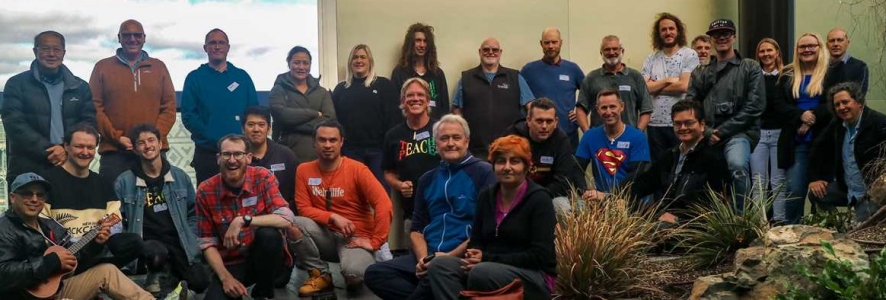Tuesday, September 11, 2012 • Alice Te Puni
BLOKES teaching in early childhood education are “rare” which makes Neil Aitkenhead’s bachelors graduation especially precious, says Early Childhood Education Centre manager Wendy Ure.
New Zealand has one of the lowest rates of male early childhood teachers in the OECD, at around 1 percent.
This makes early childhood teaching one of the most gender-segregated occupations in the labour force, even more so than firefighters, says Mrs Ure.
Ormond Kindergarten head teacher Jeff Ruston says there are not many guys in early childhood but the ones who are there stand out in a positive light.
“Neil has worked hard to complete his bachelor’s degree and we are all very pleased. He is going to be a fantastic teacher.”
Mr Ruston says more male ECE teachers are needed.
“It is definitely of benefit having men in the sector. We bring a different set of skills and life experiences which are good for the overall development of the children.”
Ministry of Education statistics show the proportion of males represented in ECE teaching has declined over the past two decades from a high of 2.3 percent in 1992.
In 2008, the 167 men among more than 15,000 preschool teachers formed EC Men NZ, which aims to boost its representation to 10 percent within a decade.
Mr Aitkenhead says there is still a way to go in changing the general perception of society.
“This is needed to encourage more men to consider ECE teaching as a serious and rewarding career path.”
He says it is a shame the Government is not playing a key role in changing the perception of ECE and promoting the value of it within society.
“They aren’t helping the situation. It is one step forward and three steps back as our Government doesn’t value early childhood education for what it needs to be credited with. It is not supporting 100-percent qualified teachers.”
Mr Aitkenhead says bad press involving historic cases of men in the industry has discouraged men from considering ECE as a career path.
“Mud does stick, especially when they are high-profile negative cases.”
The industry has come a “very long way” in setting excellent practice in place, which is reassuring both as a parent and as a male teacher, he says.
Mr Aitkenhead grew up on the streets of Belfast, Northern Ireland during the 1970s and 1980s.
The idea of men in early childhood education was an alien concept, he says.
Mr Aitkenhead’s mum is a teacher, but as far as he was concerned, education started when you were five years old.
This mindset changed when he had children of his own. It was further tweaked when his wife landed a job in Gisborne and the family moved from Wellington, six years ago.
“I found myself faced with being the main caregiver for our daughter and considering a change in career. That was really the accidental starting point of my journey.”
Mr Aitkenhead says more families are enrolling their children in ECE as economic demands “unfortunately mean” the bills have to be paid and that both parents have to work.
Comments
PAPA-Rihare
02:34 p.m. Wednesday, Sep 12, 2012
Well done mate. I too find myself a minority in an industry that needs more male role models in front of them. Being primary school trained, I found it impossible to obtain any full-time teaching positions – which are heavily populated by women. The question I pose is this, where are all the male Maori teachers in both kura kaupapa and mainstream schools? I have since taken a new pathway where I now teach at an ECE centre, because this centre gave me an opportunity. Yes it is lonely but the fruits of my labour are blossoming because the tamariki get to see a male Maori teacher in front of them who has the skills in both immersion and mainstream.


